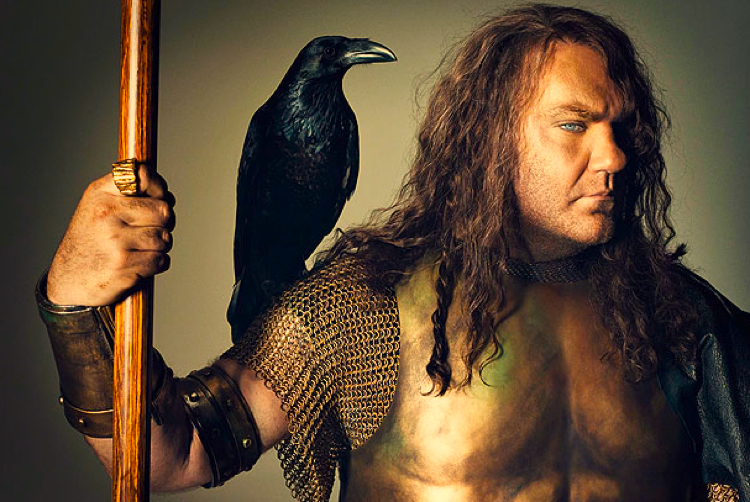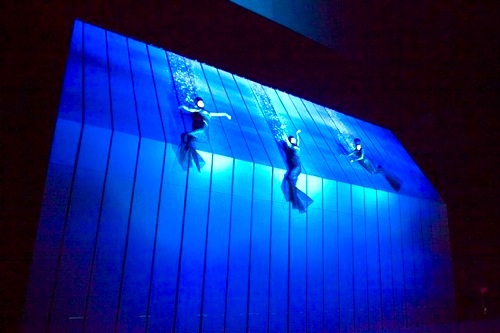
By Patricia Ducey. If you were thrilled at Lt. Colonel Kilgore’s mad helicopter ride in Apocalypse Now or swept away by the portentous opening of Terrence Malick’s The New World, you may already be an opera lover. Moviemakers have always borrowed from the rich store of classical music – and very liberally from Richard Wagner – to heighten the emotion and theatricality of their productions, and now the Metropolitan Opera is offering HD productions of the source operas themselves.
We are all now able to share these performances live across the world. At 1 p.m. the curtain rises in New York; at 10 a.m. in California we sip our coffees and wait for the theater to darken; in Switzerland they dress in formals and make an evening of it. Now in its fifth season, “The Met: Live” is the perfect marriage of myth, movie artistry and music – and it’s also affordable at roughly $22 per ticket. Last season’s Tosca and Turandot, thoroughly grounded in the familiar narrative territory of romantic literature and soaring arias, won me over – and so I ventured out recently to what I hoped would not be a morning misspent with Herr Wagner …

To be honest, in 21st century America our sensibilities have been trained to respond to the conventions of moviemaking – i.e., camera angles, close-ups, etc. – so as a neophyte opera fan, I find these ‘movie’ productions almost better than some of the live productions I’ve seen. “Not if you had good seats!” my opera loving friend counters, but how many of us can afford that $200-plus ‘good’ ticket? In the Met: Live productions, the production team expertly uses the camera to enhance the storytelling so that we’re not, for instance, continuously scanning a huge faraway stage for the action. So for anyone who did not grow up with this art form as part of their national culture, the familiar conventions of filmmaking prove an invaluable aid here. In addition, the Live broadcasts open with a backstage tour, led (on this occasion) by Deborah Voigt, and include interviews with the cast (with shoutouts to their countrymen) and wardrobe/production staff, along with a “making of the Ring” mini-doc – all of which makes the opera very accessible.
The Met: Live opened October 9 th with Das Rheingold (“The Rhine Gold”), the 2.5-hour prelude to Richard Wagner’s massive-in-scope “Ring-cycle.” The entire cycle runs approximately 15 hours and is meant to be seen in four sittings. In this epic undertaking, Wagner creates an entire mythical world, borrowed from Norse and medieval German sagas, with gods and creatures engulfed in struggles for power and greed and love, all culminating in the four-hour Götterdämmerung (Twilight of the Gods).

The opera opens with three entrancing Rhine maidens who guard the store of magical gold under the Rhine – and the evil Alberich, the dwarf who unsuccessfully woos the beauties. Angered by their rejection, he renounces love and steals their gold and forges it into a ring that the mermaid-like creatures have promised will allow any who possess it to rule the earth. We then meet the gods Wotan, his wife Fricka, and their progeny. Wotan would like to rule the earth as well, and outsmarts Alberich to steal the ring. Plot complications ensue, and the ring eventually ends up in other hands – Wotan trades away the ring for a safe home for his fellow gods. At the conclusion of Das Rheingold, his reunited family ascends into beautiful Valhalla, safe at last. Yet, as we hear the strains of familiar chords, we know that the peace of Valhalla is but a chimera; something is coming – something larger than life, something wonderful.
Terrence Malick, incidentally, who is a student of German philosophy, used the image of the water nymphs in the opening scenes of New World – mirroring the opening of Das Rheingold. I can only wonder if this was intentional. Another mythmaker, J. R.R. Tolkein, long-ago acknowledged his borrowing of the all-powerful gold ring for his own ‘Rings-cycle’ – as well as his indebtedness to Wagner’s vision.
Given the sterility and vapidity of our modern day myths (currently, Avatar), exploring opera, theater, short films or foreign films as we do at LFM can only enrich our understanding of filmmaking culture, infusing it with the chords and themes that have resonated in humanity through the ages; indeed, this may be the only way that new film practices will emerge, once the tiresome contemporary genres of the anti-hero, of puerile sexuality, or of nihilism have run their course.
While we await this salutary development, check out this schedule and make a date for The Met: Live. [There is an encore performance of Das Rheingold on October 27th.] I am not quite a Ringhead yet, but I will definitely make time for the others and certainly for The Valkyrie. These operas have it all: fierce heroes and heroines, magical golden rings, illicit love – and, most of all, majestically beautiful music.
Posted on October 12th, 2010 at 12:57pm.